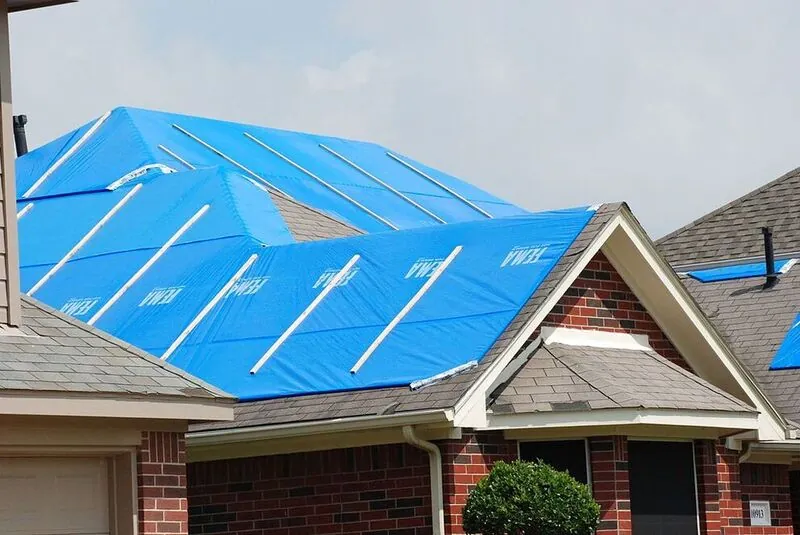Homeowners insurance is a vital aspect of owning property. Most people know that their policy covers potential damage to their home or personal belongings. Still, many overlook the importance of Section II of a homeowners policy. This section covers personal liability and becomes crucial when someone gets injured on your property. Read on to learn more about your Section 2 homeowners policy terms and why they’re important if someone makes a claim against you.

What Does Section 2 of a Homeowners Policy Cover?
Section II of a standard homeowners policy is the cornerstone of your personal liability coverage. It’s an agreement that your insurance company will defend and indemnify you for damages you may become liable to pay to a third party. These damages pertain to bodily injury or property damage resulting from an “occurrence,” typically an accident.
It’s worth noting that bodily injury usually refers to physical harm inflicted on another person, while property damage pertains to physical damage to tangible property. Most, if not all, policies won’t cover any bodily injury or property damage claims that result from intentional acts. That means if you intentionally caused damage or harm, your policy would not cover the payment to the other party.
The Duty to Defend in Section II of a Homeowners Policy
Your insurer agrees to defend you against third-party injury or property damage claims. Your insurance company must cover the costs of an attorney to represent you in such cases. Failing to provide this defense constitutes what is known as “bad faith” on the part of the insurer.
Bad faith claims are challenging to pursue, which is why you should consider hiring an attorney who understands the details outlined in this section. If you have questions about your insurer’s duty to defend as outlined in your policy, contact Johns Law Group, PLLC today.
Medical Payments Coverage
If someone sustains injuries on your property, your insurance provider should cover necessary medical expenses arising from that bodily injury under Section II. Examples of covered expenses include emergency services, x-rays, surgery, rehabilitation, and more. Eligible costs for reimbursement must have been incurred within three years of the accident date.
Medical payment coverage is not dependent on fault. It applies to people at your residence with permission. Sometimes, it may cover people somewhere other than the insured location. However, it does not extend to you or regular members of your household who suffer injuries in any scenario. If you have “residence employees,” they could receive benefits.
Potential Exclusions to Section 2’s Liability Coverage
While Section 2’s coverage is fairly comprehensive, there are some events and activities your policy won’t cover should someone present a liability claim. Examples include the following:
- Intentional acts. As mentioned above, your policy will not extend liability coverage to damages the policyholder intentionally caused. Even if you didn’t mean to cause harm intentionally, it might still be excluded if the harm was reasonably foreseeable.
- Rental activities. Some policies do not cover any rental-related activities, whether you’re renting a portion of your dwelling or the full property.
- Business acts. Liabilities arising from your trade or profession are generally not covered because this policy is for your personal residence.
- Premises not insured. Only injuries connected to your insured property are typically covered. The policy typically defines insured property as the residence itself and any grounds and structures connected to it.
- Motor vehicle use. Auto insurance typically covers auto accidents, not homeowners insurance.
These exclusions are usually found in all homeowner policies. However, different insurance companies could have additional exclusions. It’s crucial to check your policy to verify specific exclusions.
Understanding Personal Injury Endorsements
Section II traditionally covers bodily injury and property damage but not other personal injury claims, as you might assume. For example, your homeowners’ policy won’t cover claims for libel or slander. However, you might be able to add a personal injury endorsement that would.
Contact a Florida Homeowners Insurance Lawyer with Questions
Understanding your Section 2 homeowners policy terms can be rather complex. If someone sustained injuries on your property and your insurance company denies coverage, please contact Johns Law Group, PLLC. Attorney Jeremiah Jones is a former insurance defense attorney with years of experience handling homeowners insurance disputes and bad faith litigation.
Don’t accept the insurance company’s word on a denial if you believe there’s coverage under your policy. It’s easy for insurance companies to take advantage of your limited knowledge of insurance policies. Let attorney Jeremiah Jones of Johns Law Group, PLLC, help you get the coverage you pay premiums for.

